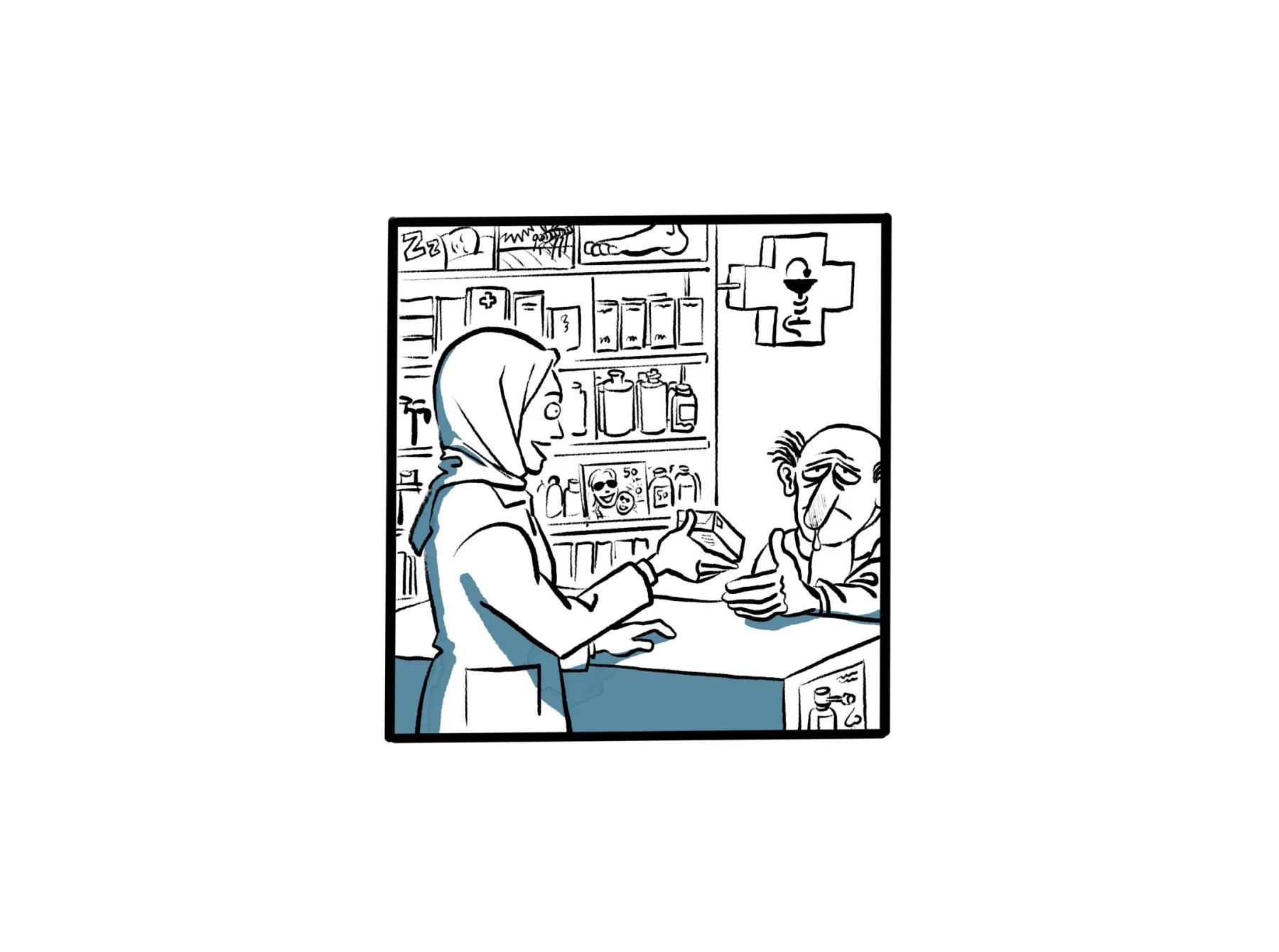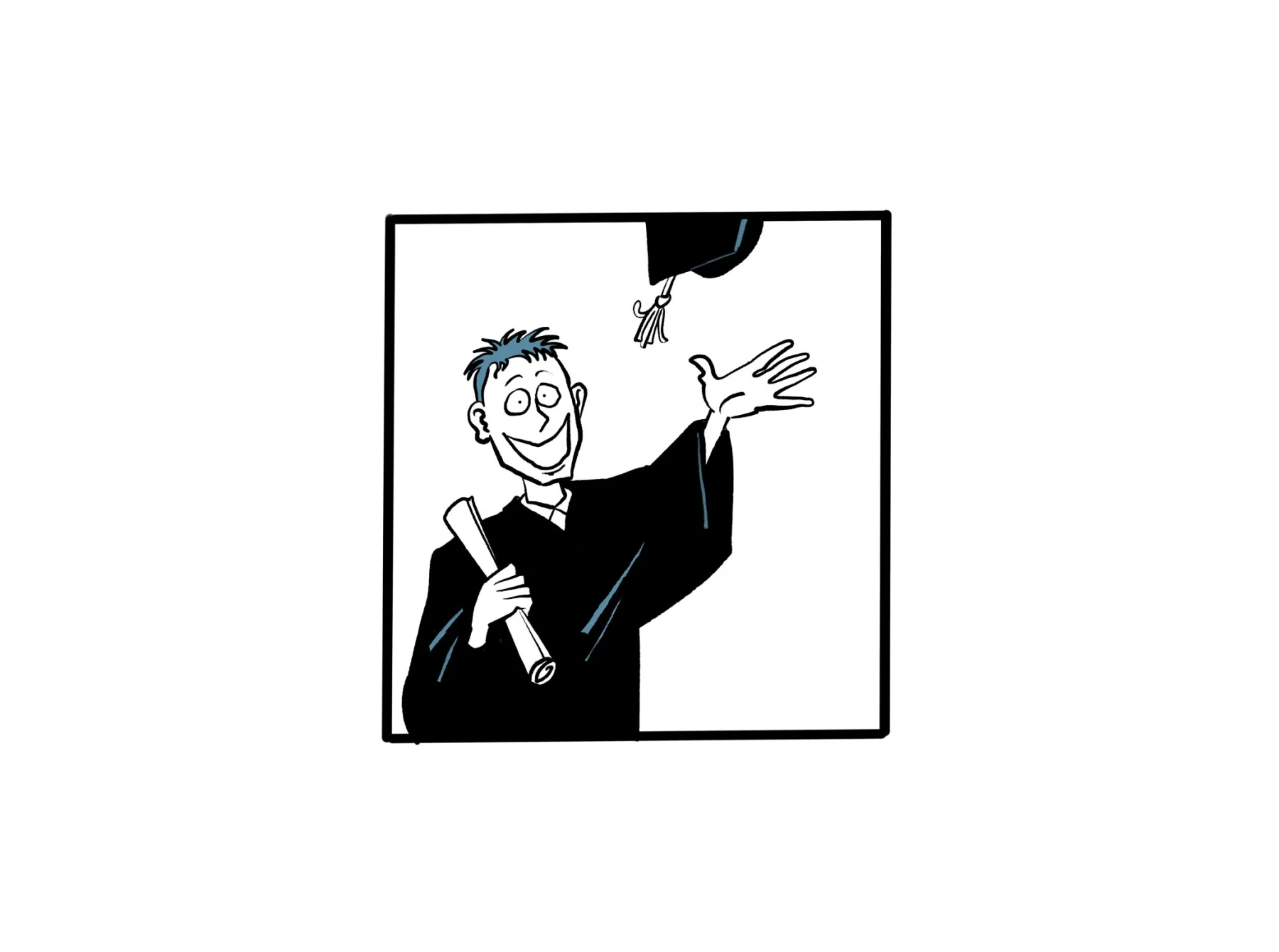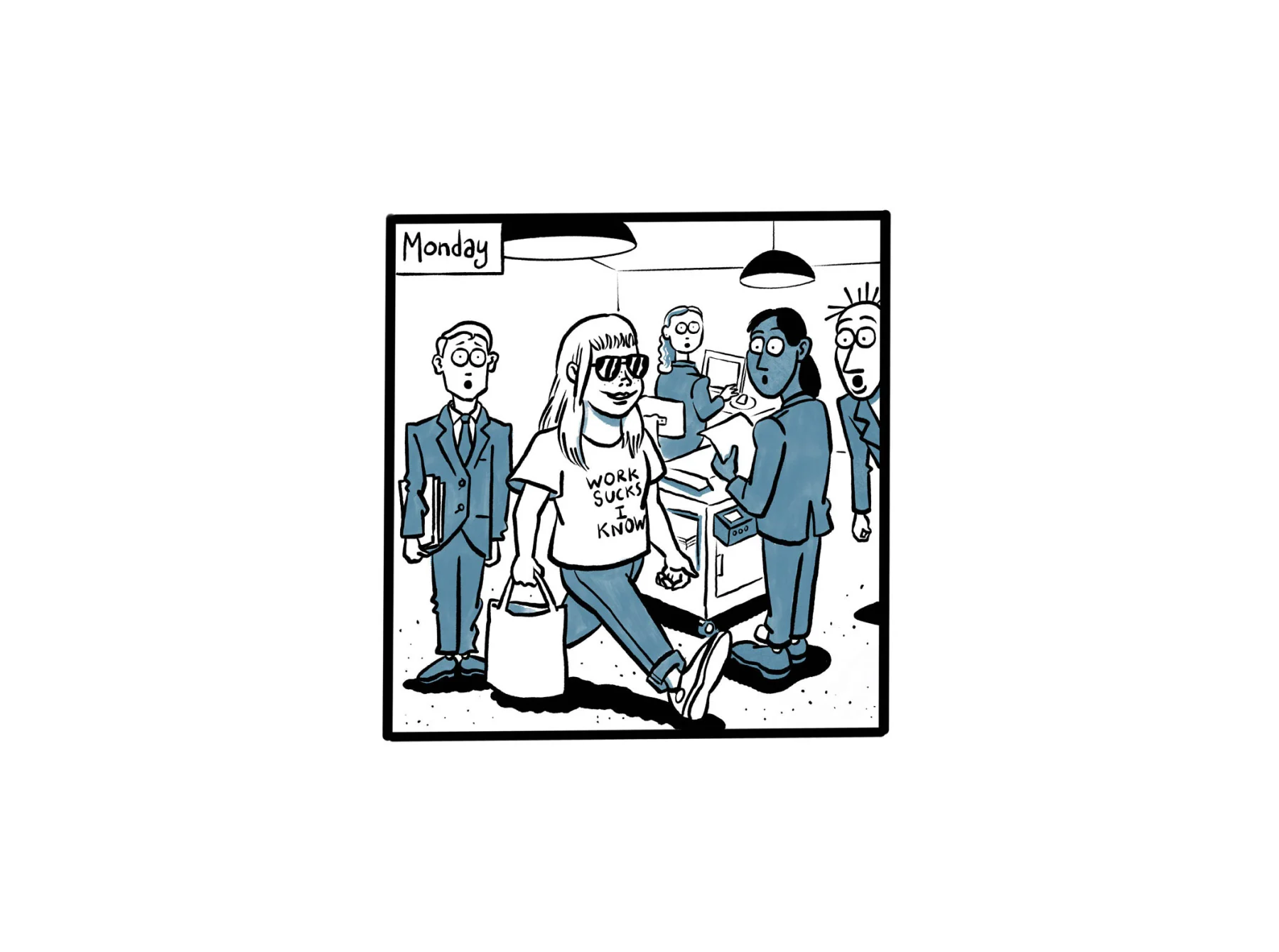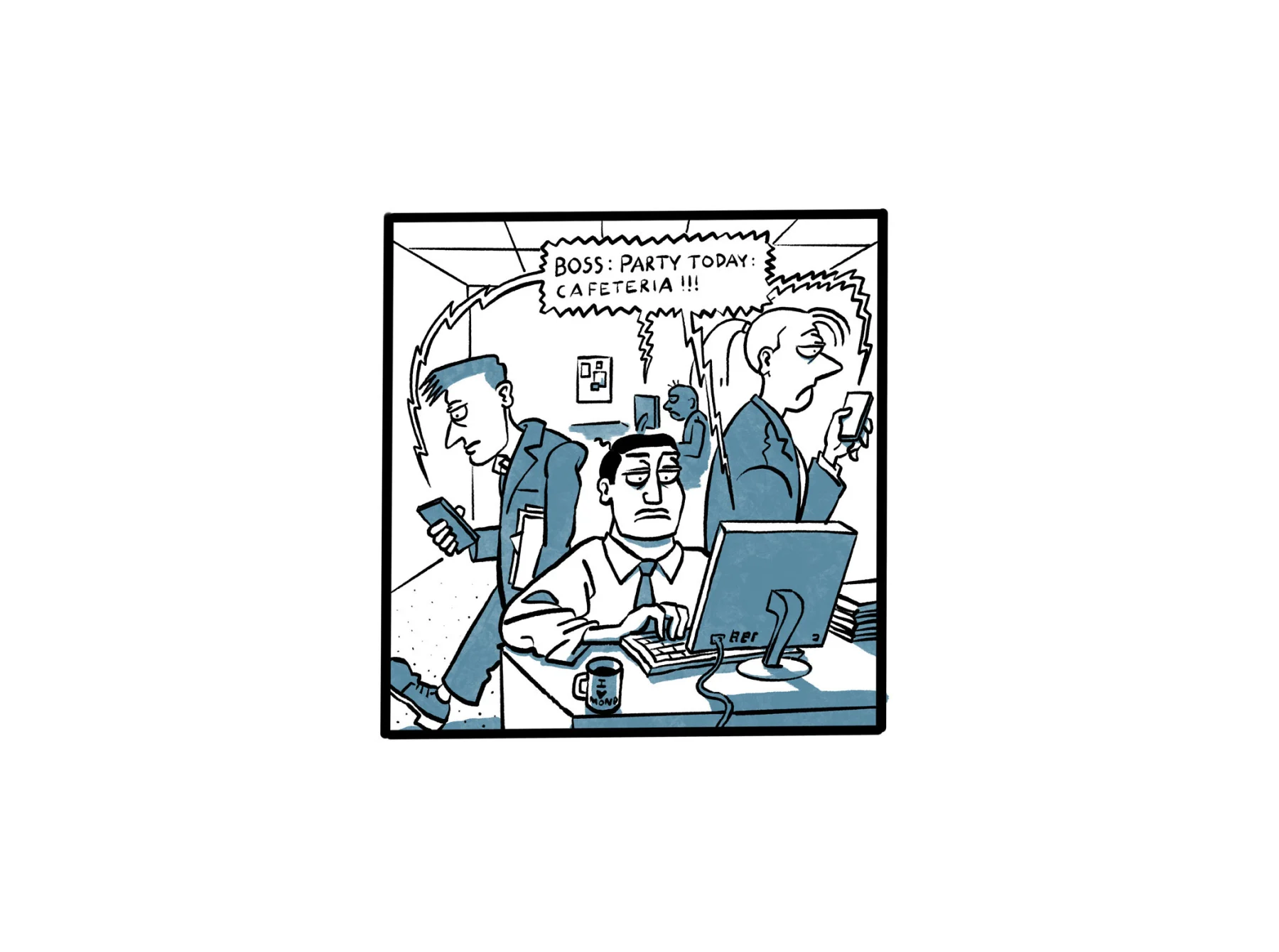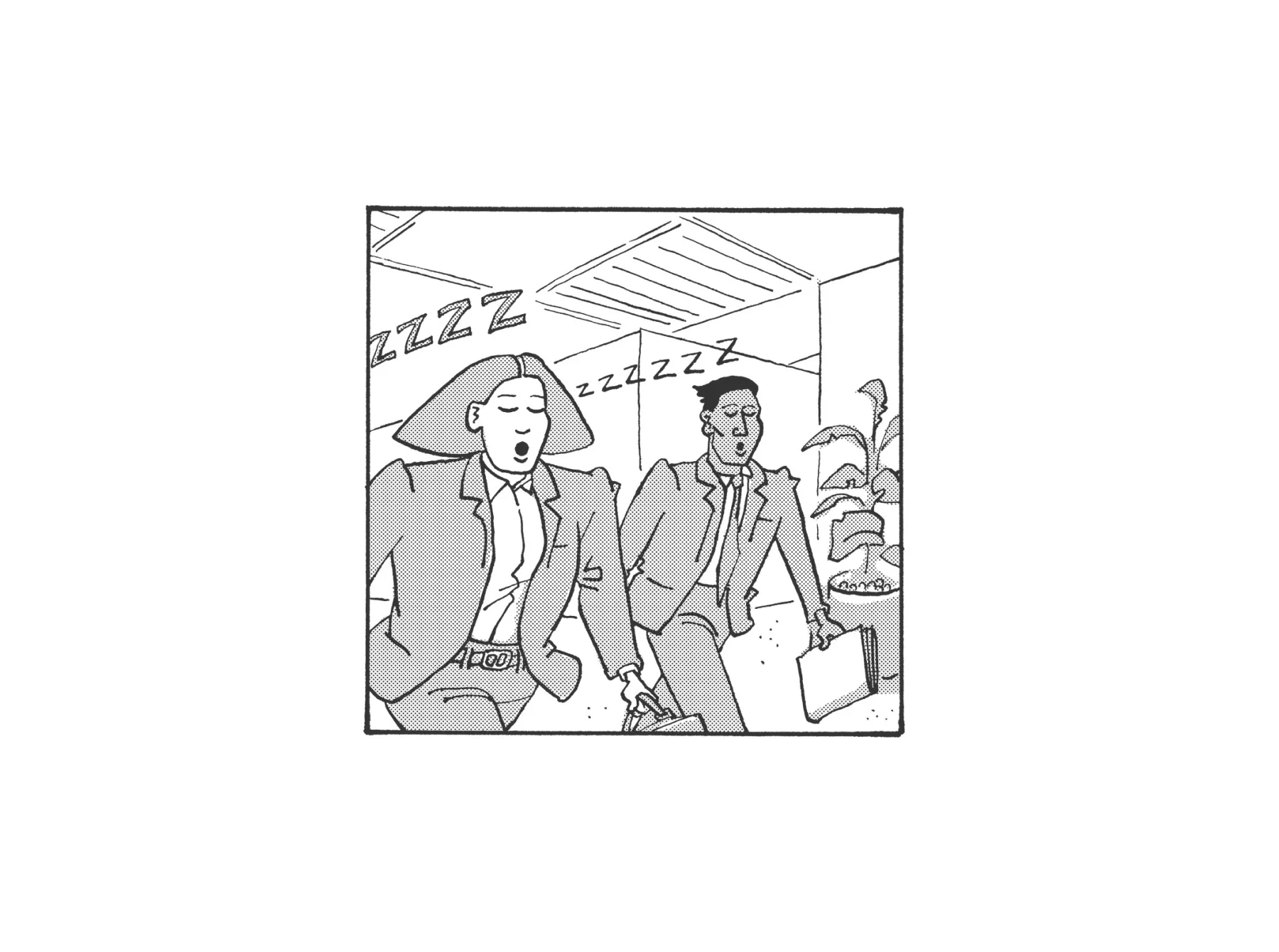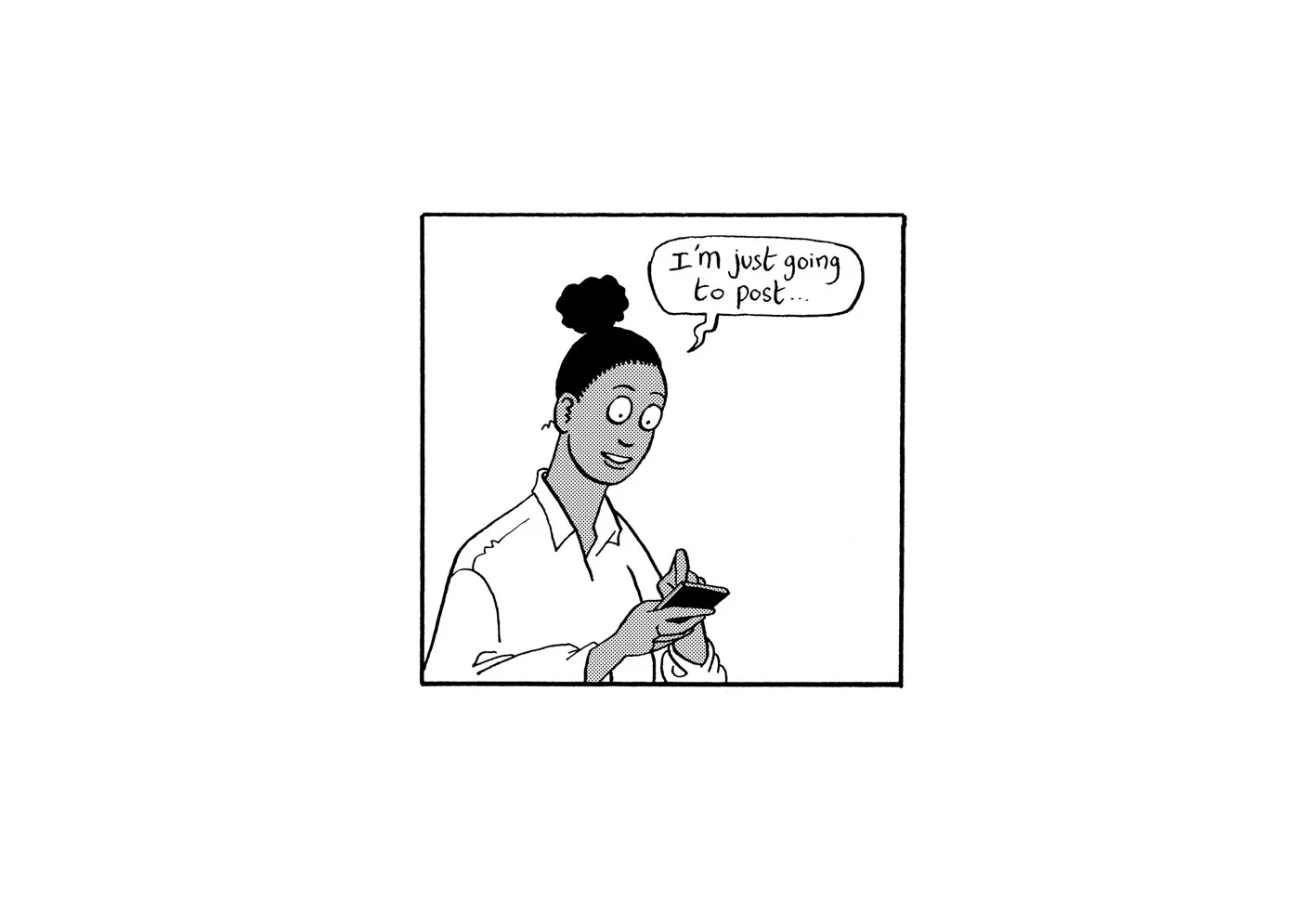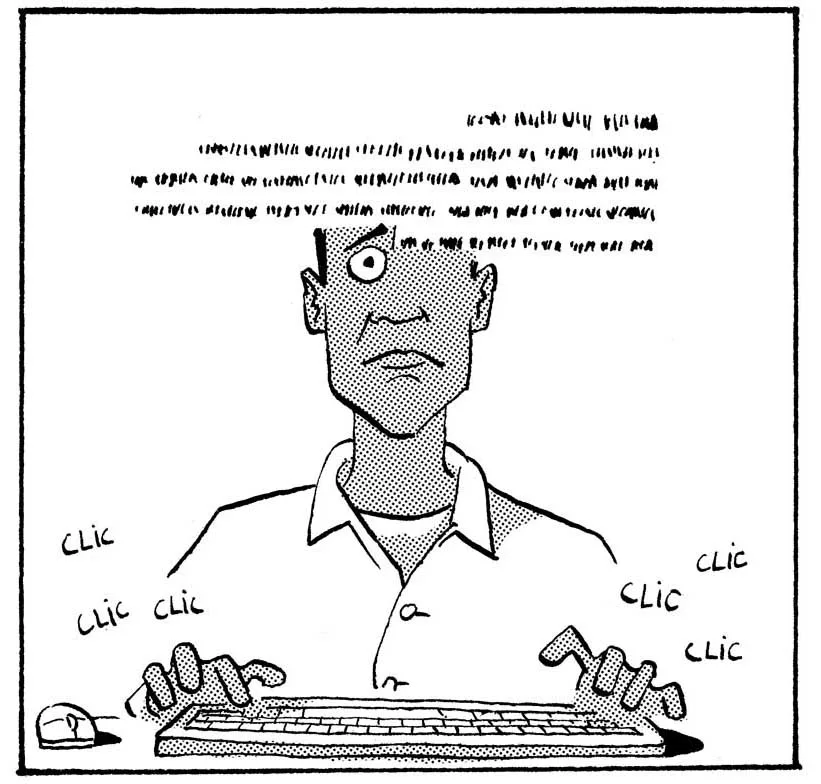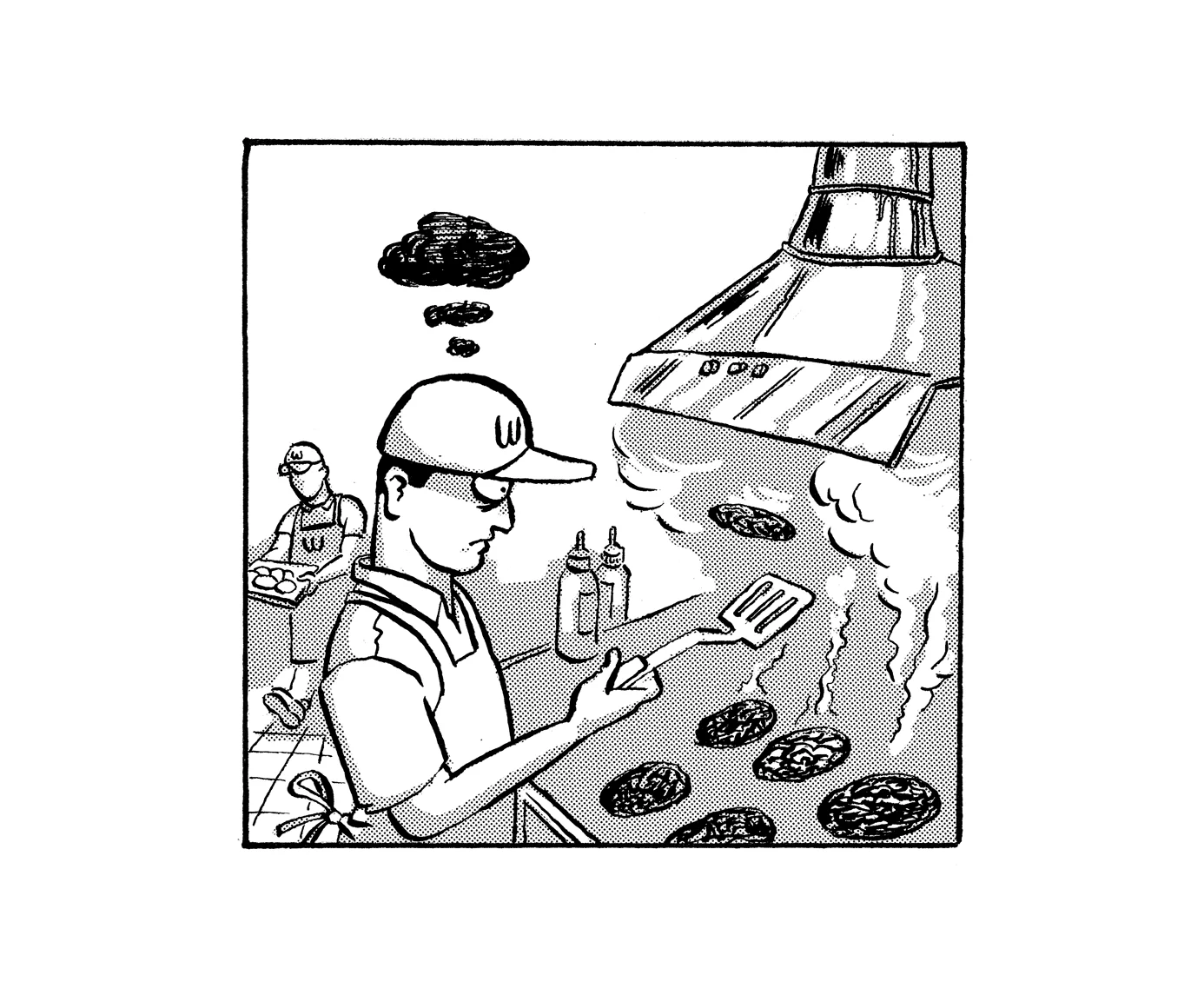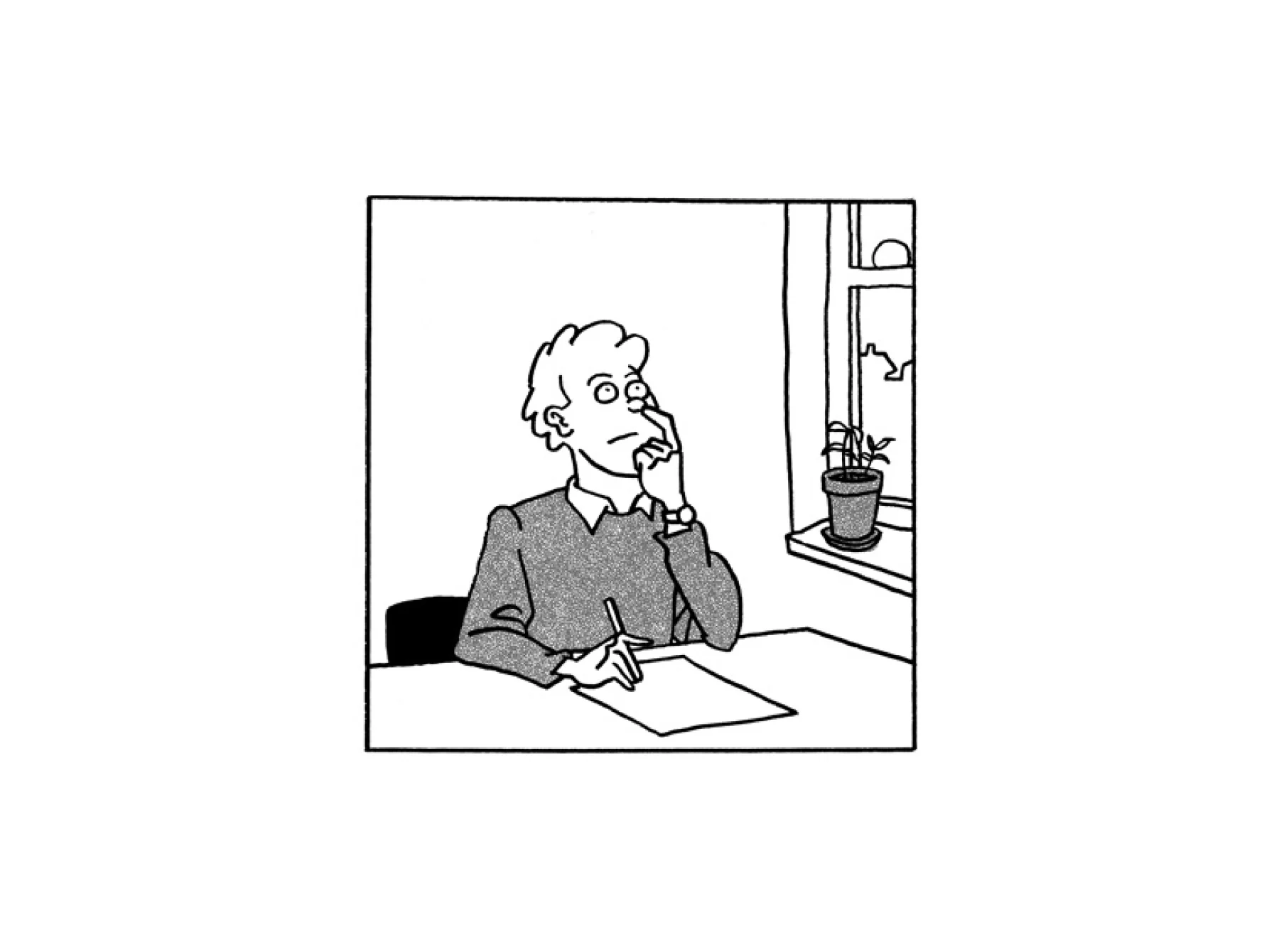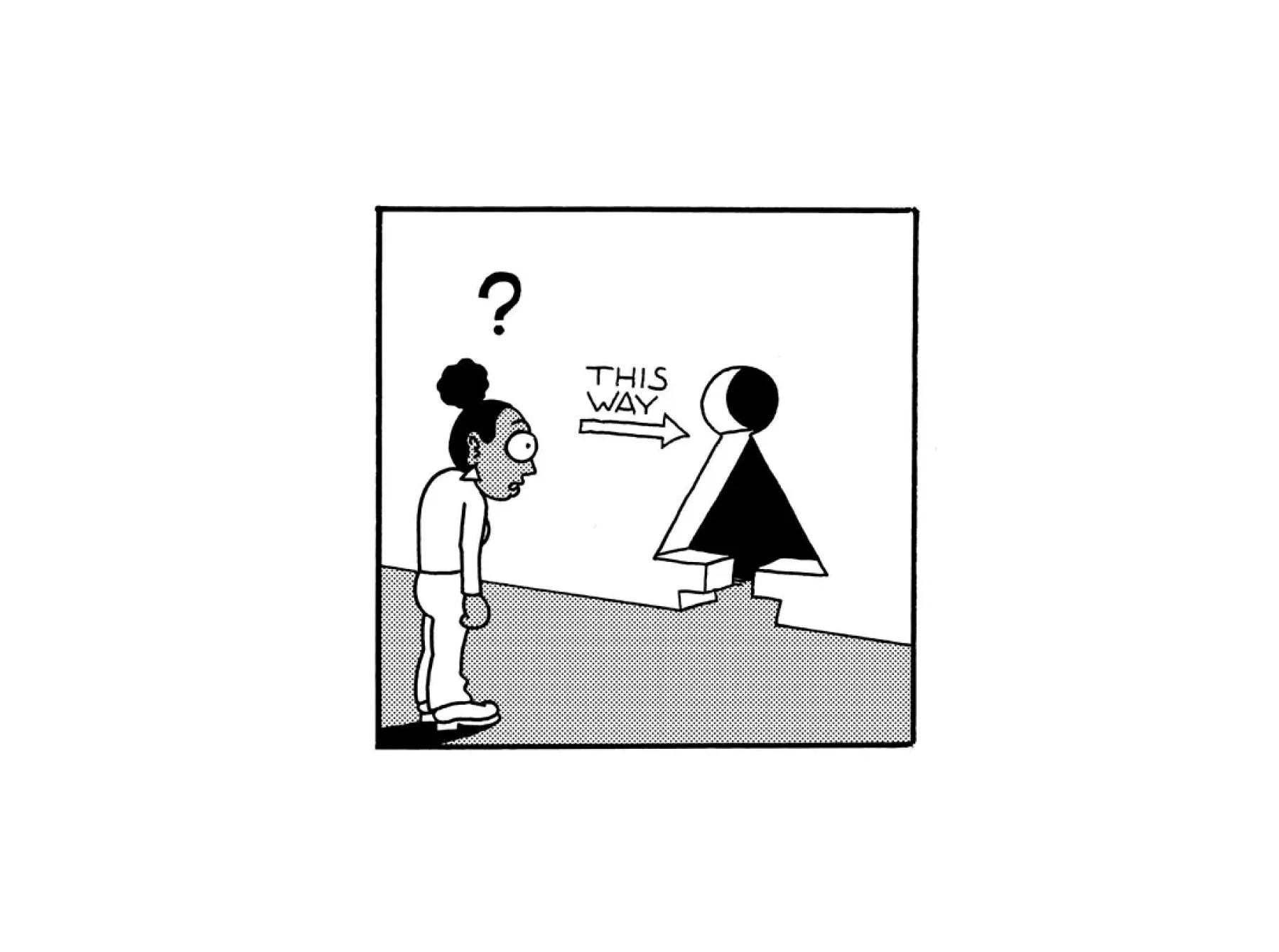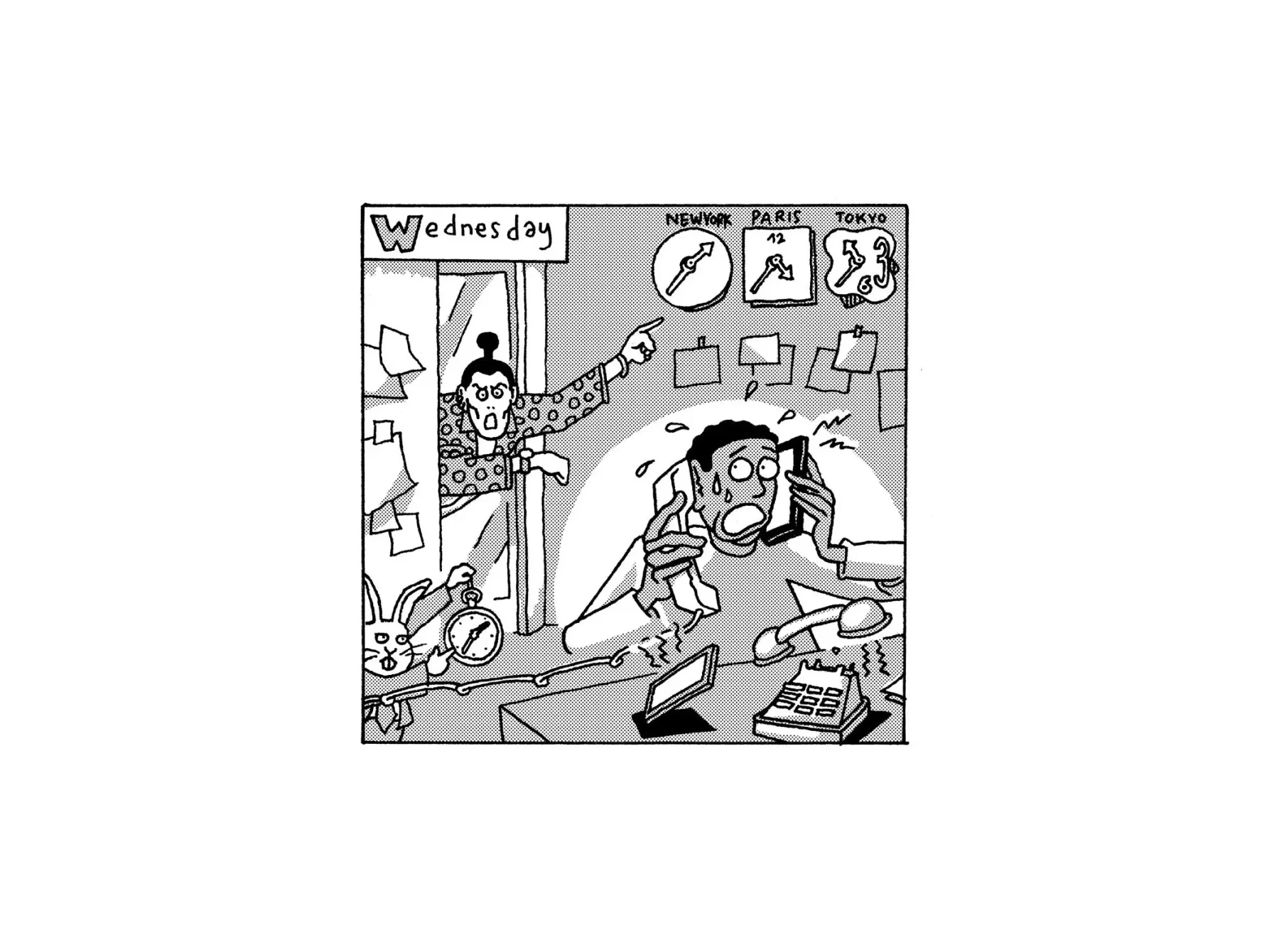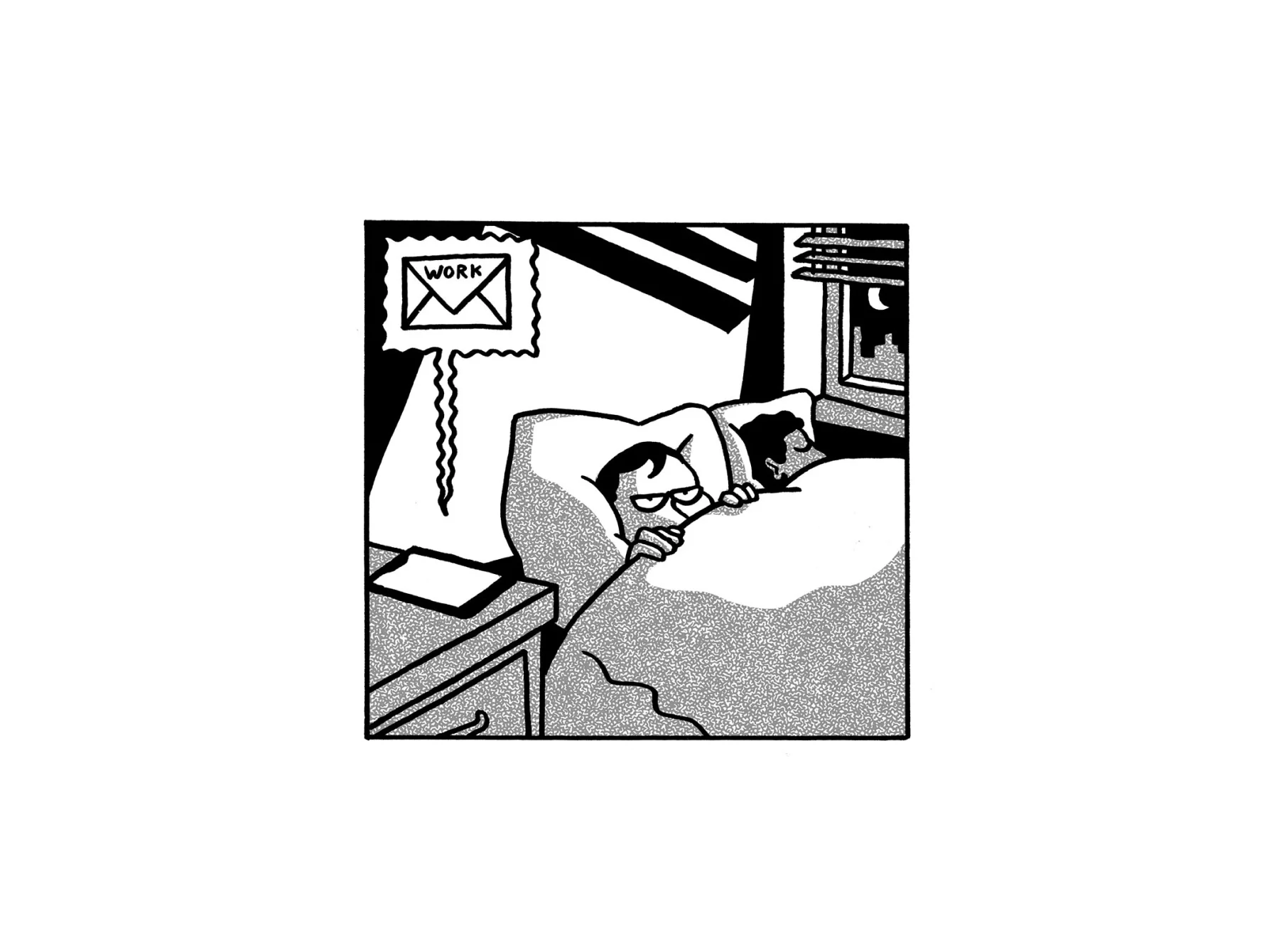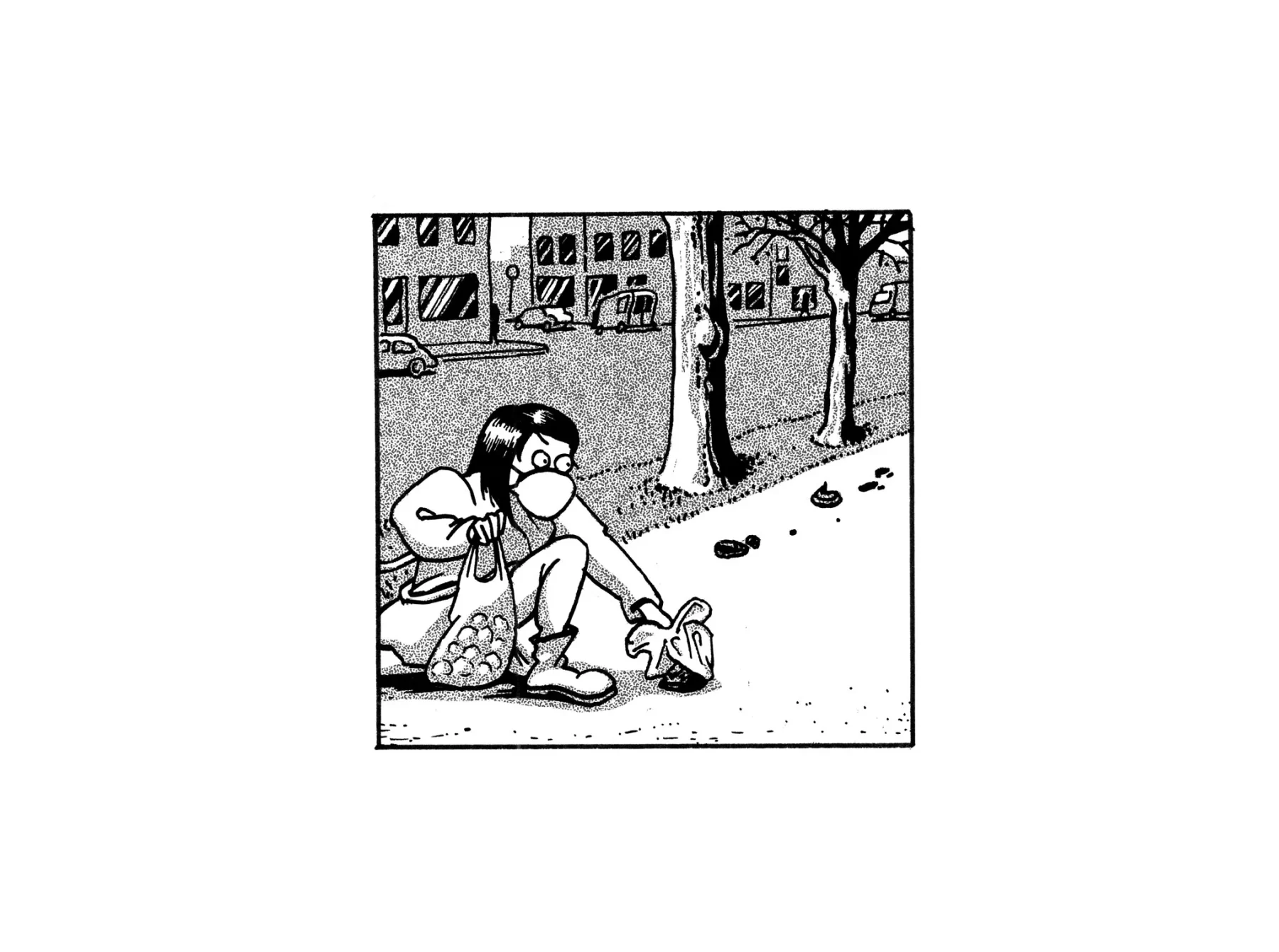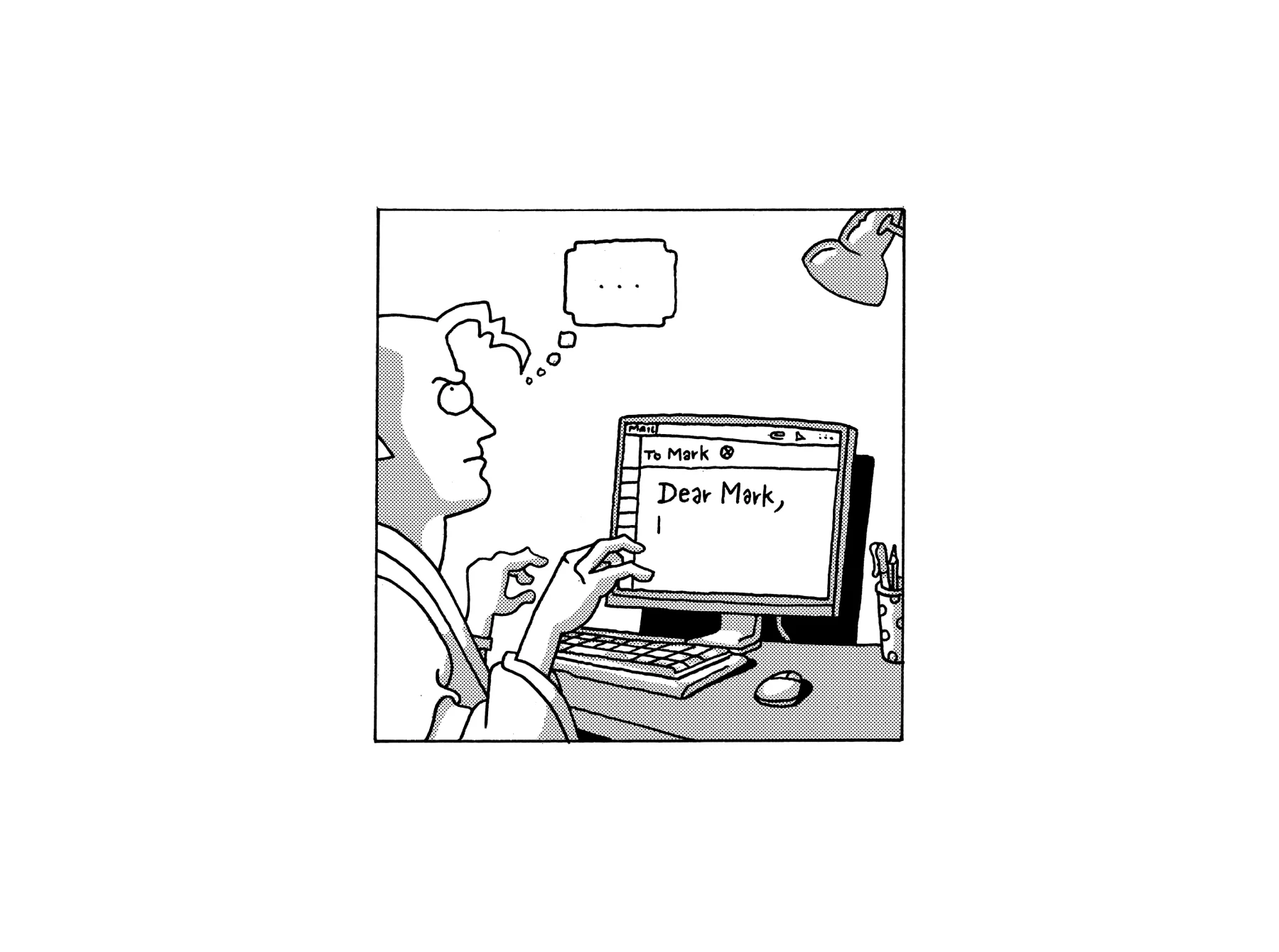
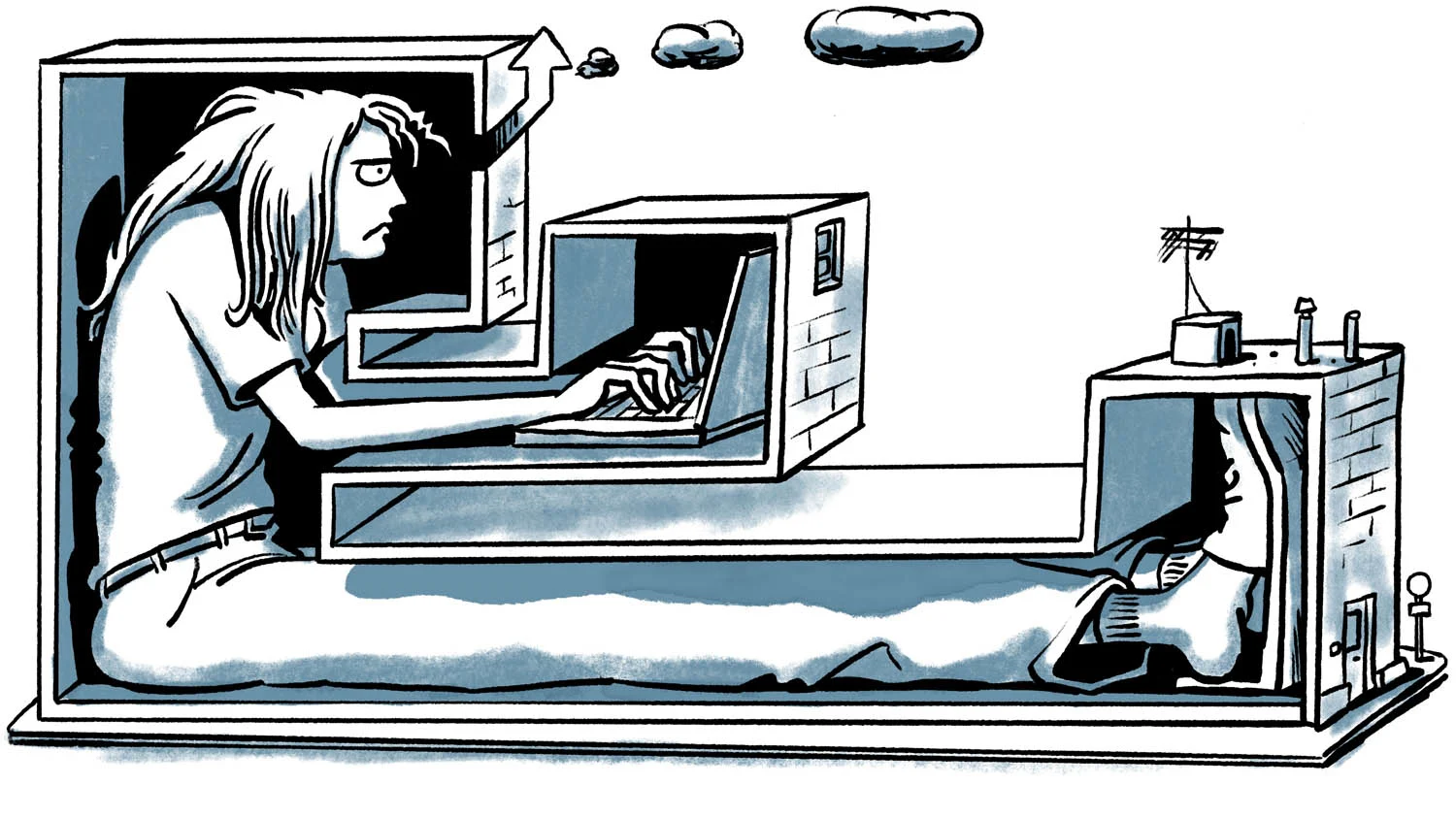
Freelance writers everywhere dream of that fabled room of one’s own, where they can create great work free of distraction and primed for inspiration. But in the middle of a rental housing crisis, many have to get creative, finding ways to turn cramped, loud, and occasionally mold-infested house shares into dens of creativity—all while ignoring the ever-present threat of no-fault eviction. Here, journalist, broadcaster and editor Kieran Yates explores the woes and joys of building a career in precarious housing.
Comic by Baptiste Virot.
Space is increasingly seen as a luxury, but we need it to produce all the things we write.
For a long time, I thought about work in increments of rent. Sometimes, five or six articles paid one month's rent in my house. On thrilling occasions, it only took two or three.
As a freelance journalist, your housing is often directly hinged to your writing—hardly conditions in which to produce your best work. Virginia Woolf’s most famous plea, of course, argued the importance of a room of one’s own, a space to exist free of disruption. But then again, she wasn’t writing during the current UK rental emergency, where 17.5 million people don’t have a stable and secure home.
Making a freelance writing career happen in between the cracks of a once-in-a-generation housing crisis brings with it some challenges. Some are obvious, like the logistical difficulty of accessing books and old magazines that are forever stacked in boxes, ready for quick transit. Some enforce a psychic break—starting a piece in one house and finishing it another; taking trips to coffee shops and trying to complete your thoughts before closing time. Space is increasingly seen as a luxury, but we need it to produce all the things we write.

In my early twenties, I graduated university on a buoyant, naïve cloud of promise, though I was, in fact, landing into a historic recession. I knew journalism was a notoriously difficult industry to get into, but I tried anyway, and benefited from being on the cusp of journalism’s move to the internet. I wrote unpaid work for print magazines that offered bits and pieces of training; and online blogs, test sites, and other forums that no one really wanted to write for. Then there were the sites that lived and died quickly. Broadly, Munchies, The Debrief, RWD—thousands of words lost into the digital ether.
Having rent to pay made way for a chaotic and diverse array of jobs that I hoped would bring me closer to my chosen career. So alongside the odd unpaid internship, I was paid for the following: flyering for club nights in the freezing winter, writing reviews for the NME at £30 a pop, doing PR for record labels, writing copy about lamps, selling Christmas cards at craft fairs, and waitressing at a pizza restaurant. Even then, my rent was always late.
I reviewed gigs, took night journalism courses, and attended parties and events with a lot of free booze. And then I’d return home drunk to my housemates, all of whom were also working multiple jobs, at theaters, bookshops, unpaid internships, and various customer service hellscapes.
House shares teach you to write around the habits of your housemates—the cacophonous shagging, the behind-the-bar night-shift hours. And when it works, it works. It felt like we were all defiantly pushing back against the barrage of headlines telling us there was no hope for anyone brazen enough to think they could acquire employment. And when the rents rose and we felt like the ground was falling out from underneath us, we picked each other up.

I got commissions that paid the rent, and writing them gave me a chest infection.
Often, my lifestyle did not reflect just how little money I had. I wrote pieces that were either unpaid, or would be paid in 30 days, which meant that I was on the hook for expensive phone and travel bills until the money came in. Part of my job was interviewing celebrities from my bed on expensive calls I couldn’t afford; then spending hours doing the agonizingly slow work of transcription, letting the voices of various artists on the Top 10 singles chart play out on half speed. I interviewed headliners at festivals I could never afford to go to, flew around the world on press trips, attended live gigs, and then returned to bed, glowing from the inside, luminous and warm—which was just as well because we couldn’t afford to put the heating on.
Perversely, my journalism career started to take shape in the moldiest house I’ve ever lived in. I got commissions that paid the rent, and writing them gave me a chest infection.
I interviewed some of the most exciting music stars of my career—Erykah Badu, Dr. Dre, Mick Jagger—and went on thrilling press trips to meet them. When I returned, I would flop back onto my bed at home and dream of Miss Havisham’s mold-ridden wedding cake edging away from the wall. Though the mold was penetrating my dreams, in real life, I shrugged it off as no big deal. My professional life was finally getting somewhere. I felt the joy of being paid to spend hours in my room writing, occasionally huffing on bleach residue, and feeling moments of pure excitement whenever I got published.
Despite that, I didn’t want to spend all my time at home sucking up spores, so I went out a lot, saying yes to invitations I wouldn’t otherwise accept. I went to the Turner Prize exhibition to see artists I wasn’t excited by. I listened to “soundscapes” at noise nights that sounded like thousands of nails hitting a concrete floor. I went to house parties hosted by people I didn’t like, stayed on for after parties, and woke up on strange floors. I saw “Aida” performed by the English National Opera because I got a free ticket (I didn’t like it), and attended two different amateur productions of “The Vagina Monologues” just because. You could, if you were an eternal optimist, say the mold pushed my cultural palette forward.

While it is obviously silly to romanticize these sharp corners of the crisis, as we advocate for better, it is comforting to focus on the joys.
As the unjustifiably high rents of London continued to rise steadily around me and my friends, coffee shop work dwindled, and I spent most of my time in bed hunched over the gray plastic tray I rested on my lap as a makeshift desk, with chocolate Hobnobs in the cup holder for a treat. In 2019, 20% of people aged 20 to 30 in London didn’t have a living room at all. It is still, in 2023, relatively common for renters not to have a living room as an increasing number of landlords are letting them out as extra bedrooms, squeezing profit from any space they can.
At various points, I’ve had to move house every 12 months, and I have used writing as a joy through the disruption. All writers wish for a landscape that removes the barriers to beautiful thoughts, or structure, or story. But housing insecurity is something we often take with us. It forces a constant resetting, but it’s also a constant reminder to observe—and my eye has had a lot of practice. In the same way moving has forced me to learn new postcodes, I’ve had to learn new coffee shops, new communities, too.
Writing, for me, alleviated the tension of a landlord breathing down my neck. I learned how the work feels different in different places. My writing felt compressed when I lived in tighter spaces; and funnier when I had more housemates to bounce off. The same magazine layouts that looked dull in my flat above a shop bloomed in the natural light of my flat in Peckham. While it is obviously silly to romanticize these sharp corners of the crisis, as we advocate for better, it is comforting to focus on the joys.
Now, I am fascinated with home—interiors, exteriors, and trinkets; how people live in their chosen spaces and why. I ask everyone about it and always want to know more. The reality is that housing precarity will follow many of us throughout our lives, and all we can do as writers is share our knowledge and experiences of this reality, and hope we survive to see conditions improve. For now, I am lucky that the words still form between the cracks, settling down onto the page—until I have to move again.



